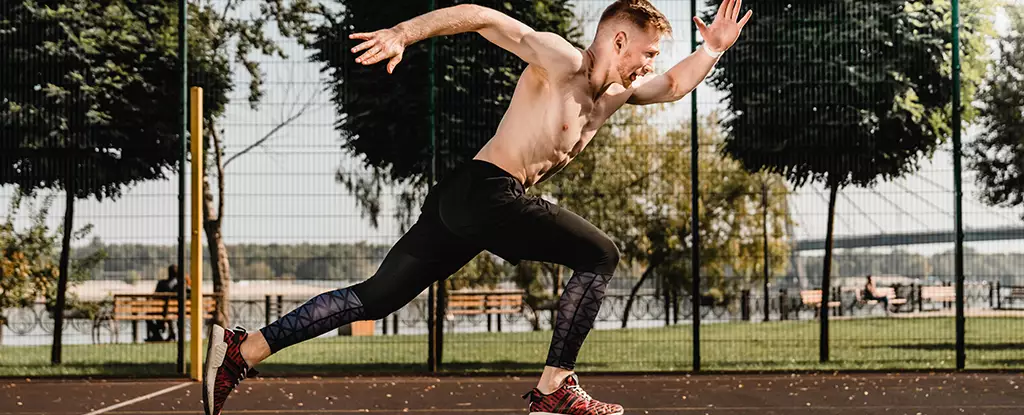Engaging in extreme levels of exercise may not be as beneficial for the immune system as previously thought, according to a recent study involving firefighters. The study, which analyzed over 4,700 post-exercise fluid molecules, revealed some concerning findings. For individuals with physically demanding jobs or intense fitness training requirements, such as emergency workers and athletes, this news could have significant implications. The study suggests that individuals who are extremely fit may actually be more susceptible to viral respiratory infections immediately following vigorous exercise. This could be attributed to a reduction in inflammatory activity, which is essential for fighting off infections.
While moderate physical activity is generally believed to support the immune system in the long term, the immediate effects of intense exercise on immunity remain a topic of debate. While some studies have hinted at an increased risk of opportunistic infections following strenuous activities, others have failed to establish a direct causal link. To shed light on this issue, researchers conducted a study involving firefighters subjected to intense exercise. The findings revealed a decrease in inflammatory molecules post-exercise, along with changes in the oral microbiome. These results raise questions about the short-term impact of vigorous exercise on immune function.
The researchers involved in the study theorized that certain changes observed in the participants could be adaptive responses to the increased physical demands imposed by exercise. For instance, the observed increase in opiorphin, a blood vessel dilator, may serve to enhance oxygen and nutrient delivery to muscles during exercise. Additionally, alterations in the oral microbiome, including a rise in antimicrobial peptides, could be the body’s way of compensating for immune suppression. However, the effectiveness of these responses in preventing infections remains uncertain, as indicated by the researchers’ findings related to E. coli growth.
While the study’s results point towards a potential link between physical demands and respiratory infections, some experts offer alternative interpretations. They argue that the observed changes may actually reflect an augmented state of immune surveillance and regulation, rather than outright suppression. Moreover, the unique exposures faced by firefighters, such as pollutants during fires, could influence their immune responses in ways not fully captured by the study. The researchers themselves acknowledge the limitations of their study, which focused solely on healthy, active men. To draw more definitive conclusions, further research involving a more diverse population is deemed necessary.
The study contributes to a growing body of evidence highlighting the complex relationship between exercise intensity and immune function. While there are indications of potential immune suppression following vigorous exercise, the full extent of these effects and their significance remain uncertain. The findings underscore the need for additional research to elucidate the mechanisms underlying these observations and to explore how they may impact individuals engaged in strenuous physical activities. By expanding the scope of their investigations to include a broader range of participants and considering the specific challenges faced by different groups, researchers can deepen our understanding of the interplay between exercise, immunity, and overall health.


Leave a Reply